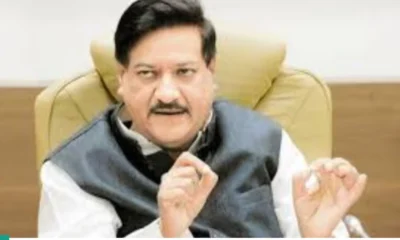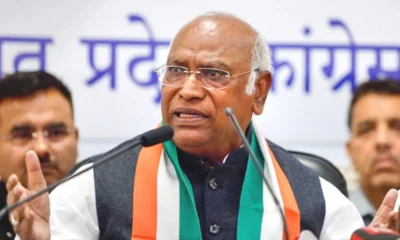The Lok Sabha on Wednesday, August 1, passed the Insolvency and Bankruptcy Code (Second Amendment) Bill 2018.
The Bill amends the Insolvency and Bankruptcy Code, 2016 to clarify that allottees under a real estate project should be treated as financial creditors. This aims to provide relief to home buyers who, as financial creditors, will be able to decide the future of defaulting builders alongside their lenders.
The voting threshold for routine decisions taken by the committee of creditors has been reduced from 75 per cent to 51 per cent.
For certain key decisions, this threshold has been reduced to 66 per cent. This makes it easier for banks to agree on salvaging a failed firm from being wound up by lowering the votes needed for taking critical decisions to 66% from 75%, reported Live Mint.
The Bill also allows the withdrawal of a resolution application submitted to the National Company Law Tribunal under the Code. This decision can be taken with the approval of 90 per cent of the committee of creditors.
The demand from the main opposition party, the Congress, to refer the proposed amendments to a parliamentary panel was not accepted.
Interim finance minister Piyush Goyal, who moved the Bill, said the financial creditor status would help home buyers protect their hard earned savings and that the changes in voting requirements were based on global best practices.
“We looked at global best practices. In the UK, for example, a resolution plan is accepted if 51% of lenders agree. The government decided that some provisions need concessions so that more stressed assets get resolved,” the minister said.
Congress members, however, alleged that lowering the votes needed to clear corporate revival plans to 66% would benefit investors who could buy stressed assets for a song. Congress MP M Veerappa Moily demanded that the bill be referred to a parliamentary panel for review, while P Venugopal of the All India Anna Dravida Munnetra Kazhagam (AIADMK) said it did not specify whether home buyers would be treated as secured creditors.
In his reply to the discussion on the Bill, Goyal said liquidation of companies was the last option and that the intention of the law is to save enterprises wherever possible considering the need for saving jobs.
“Whether home buyers are secured or unsecured creditors will be decided on a case to case basis by the resolution professional and the courts,” said Goyal. The minister also said there was no plan to denationalize any public sector bank.
Opposition alleges move to benefit Reliance
Leader of the Congress Mallikarjun Kharge and several others alleged that the ordinance was brought to facilitate the acquisition of Alok Industries by Reliance Industries.
“People want the government to respond immediately and that is what is appreciated,” he said, adding “we want resolution and not liquidation” of ailing companies.
Kharge alleged that the ordinance was brought by the government to help the Reliance Industries to acquire Alok Industries.
“You brought this ordinance in haste. You do not respond with such alacrity during floods. The minister’s reply is not proper. We protest and walk out,” he said while leading the walkout.
Earlier, several opposition members demanded that the bill may be referred to a Standing Committee.
Participating in the debate on the measure, Congress member Veerappa Moily said the National Company Law Tribunal (NCLT) had become “an instrument for siphoning off funds” of the treasury as banks were taking huge haircuts and corporates were buying out insolvent companies for paltry sums.
“Be fair and refer the bill to the Standing Committee. Because you got stuck up in the NCLT, you brought in the bill. The Ordinance is tainted and sending it to the Standing Committee will remove the taint,” he said, adding that the “greed” behind bringing the bill is to “loot the banks”.
Moily, a former Corporate Affairs Minister, said if the bill was referred to the Standing Committee, then it would submit its report within 15 days. Moily is now the Chairman of the Standing Committee on Finance.
N K Premachandran (RSP) said the promulgation of the IBC (Amendment) Ordinance was a “clear case of crony capitalism”, saying it intended to benefit a particulate industrial house.
“Alok Industries owed Rs 300 crores to banks, Reliance Industries bought it in Rs 50 billion, banks loss was Rs 250 billion,” he asserted, while alleging that undue haste was shown by the government in bringing the bill.
Questioning the government’s urgency in bringing the IBC Ordinance when the Monsoon Session was just a month away, P Venugopal (AIADMK) said a perception was being built that the government has brought in the amendment bill to facilitate one corporate house.
“The IBC is being amended in haste to allow Reliance Industries to take over Alok Industries…. In the name of NPA clean-up, the government should not be seen as supporting crony capitalism,” Venugopal said.
Saugata Ray (TMC) said the government was leading the country to a ‘blind alley’ and the IBC should not be seen as a panacea for all illness.
“Mr Goyal, our caretaker Finance Minister, we can’t see the banking sector collapse… I support the Congress demand of referring the bill to the Standing Committee,” Ray said.
He said under the resolution process, banks were taking huge haircuts and the IBC is leading to “crony capitalism”.
Citing the resolution process of the Alok Industries, Ray said the Reliance Industries could not acquire the company at the first instance since the resolution plan got less than the required 75 per cent vote.
“The IBC amendment bill brought by the government lowers the minimum vote requirement for passing the resolution to 66 per cent from 75 per cent in the original act. Just for 66 per cent vote, you can acquire a company. Just for Reliance Industries, Government has brought an Ordinance,” Ray said.
The TMC member said in case of Bhushan Steel takeover by Tata Steel, the banks had taken 40 per cent haircut and lost Rs 210 billion. In case of Vedanta buying Electrosteel, the haircut was 60 per cent and the banks lost Rs 84 billion.
As regards Alok Industries, banks have taken 83 per cent haircut and the loss is to the tune of Rs 250 billion, he claimed in the House.
The other members who participated in the debate included Subhash Baheria (BJP), P S Chandumajra (SAD), J P Narayan (RJD) and Dushyant Chaoutala (INLD).


 India News22 hours ago
India News22 hours ago
 India News19 hours ago
India News19 hours ago
 Cricket news5 hours ago
Cricket news5 hours ago
 Latest world news4 hours ago
Latest world news4 hours ago
 Latest world news5 hours ago
Latest world news5 hours ago
 India News57 mins ago
India News57 mins ago











